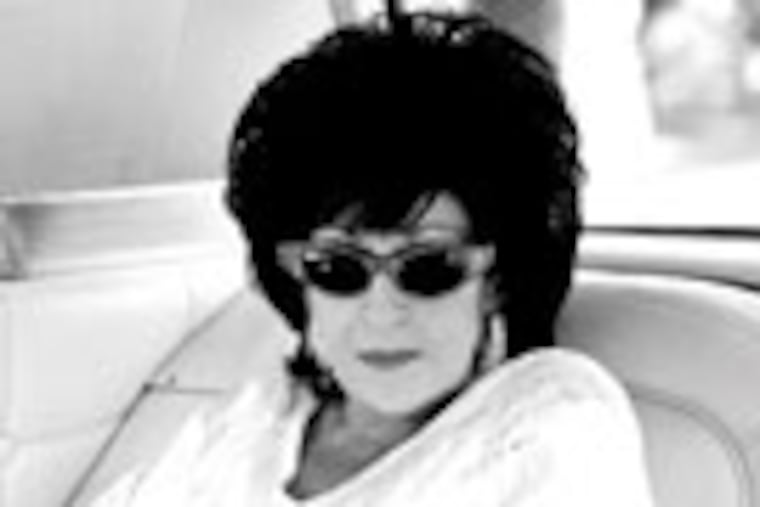
Jack White might be finished making music with his former wife in the White Stripes, but he has found another woman with whom he can make music just as sweet. At 73, rockabilly legend Wanda Jackson won't be mistaken for White's spouse, or his sister, but the songs on her new, White-produced album, The Party Ain't Over, are proof of a match made in heaven.
Jackson, who was inducted in 2009 into the Rock and Roll Hall of Fame as an early influence, has collected some formidable admirers in recent years. Elvis Costello wrote the Rock Hall a letter promising to withhold a cherished guitar until Jackson was admitted; Bruce Springsteen crowded into an Asbury Park bowling alley to see her; and Neko Case, whose swelling voice owes much to Jackson's formidable growl, joined the throng paying tribute on 2004's Hard-Headed Woman: A Celebration of Wanda Jackson.
But White was after more than mere homage, forcefully urging Jackson to tap into the volcanic energy of signature songs like "Fujiyama Mama" and "Let's Have a Party." Just before she launches into a swinging, steel-guitar-embellished version of Amy Winehouse's "I'm No Good," you can hear her protest White's persistence: "I always have to push."
On the road in Germany, Jackson said she was still not sure what White was pushing for on her album. "He was just wanting more attitude," she said. "I was hearing Amy Winehouse's version in my head, and he wanted to do it in my style."
At the tender age of 16, Jackson was one of the first female artists to cross over from country to the nascent sound of rock-and-roll, which she did at the personal urging of her friend and sometime sweetheart Elvis Presley. Rosanne Cash, in her speech at Jackson's induction into the Hall of Fame, said: "For girls with guitars, myself included, Wanda Jackson was the beginning of rock-and-roll."
Straddling the worlds of country and rock wasn't an easy task, even with the help of songs like the custom-built 1956 single "I Gotta Know," which sways back and forth between fiddle-tinged waltz and rockabilly swagger. Ernest Tubb once blocked Jackson's path to the stage of the Grand Old Opry until a jacket could be found to cover her bare shoulders, and when she first went on tour, a female singer was such an oddity that she sometimes had to use gas-station restrooms as makeshift dressing rooms. But it was never a matter of choice, any more than it was to sing in the sultry rasp that became her trademark.
Acclaim "surprised everybody, me included," Jackson said. "It was just the songs. I was afraid maybe my country friends wouldn't like it, but I found out different."